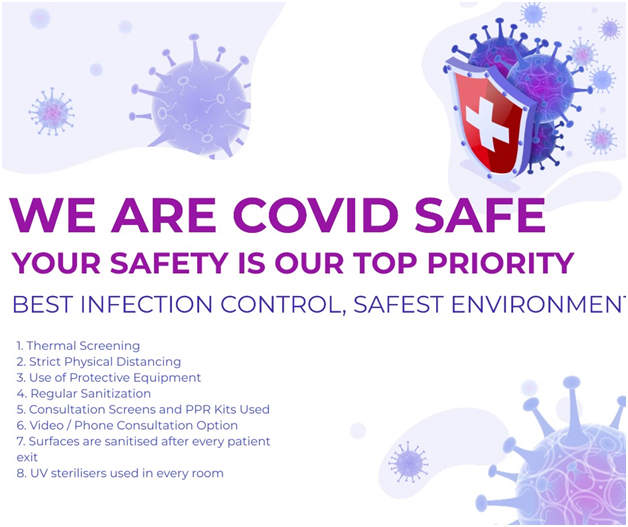In general, fear is noted in the minds of people if they have to visit a COVID hospital. The fear is partly justified since the chances of exposure could be higher.
However, non-COVID hospitals, which follow a very strict protocol are the only ones safer for them. Routine use of masks, sanitising surfaces before touching them, face shields and social distancing still remain the cornerstone of prevention of COVID.
All non-COVID hospitals should follow the screening of people entering the hospital with the help of detailed enquiry, forms etc and preventive care should start right before the entry.
All patients to be admitted should be screened for COVID ideally with RtPCR and HRCT when required and should be quarantined at home or in an isolated ward before the test results are available. Strict policy for one attendant should be followed.
At LOC, we follow a strict protocol. There are screens/sneeze guards between the patient and doctor in every cabin. Surfaces are sanitised after every patient exit. Patients are made to wear gloves and masks before entry and every kind of patient contact or touch is avoided. UV sterilisers are used in all cabins including operation theatres.
All the rooms are fumigated and sanitised daily. The entire operation theatre team uses not only PPE but respirators and goggles for the entire team . Appropriate smoke evacuation devices, intubation hoods are used and patients are shifted in and out with masks only. The new normal after COVID is minimal stay in the hospital and most procedures have one day or minimum possible stay in the hospital. All the wounds are glued with a sealant instead of stitches and an online follow up is offered.
The new normal is probably to live with COVID and try and treat those who deserve treatment, with all the due care needed . Patients safety is the safety of hospital staff and the safety of hospital staff is the safety of the patients. Thank you for your faith in Laparo – Obeso Centre.



